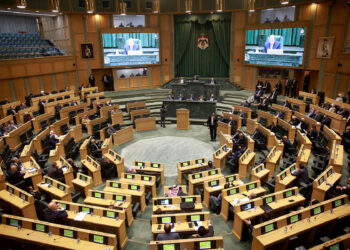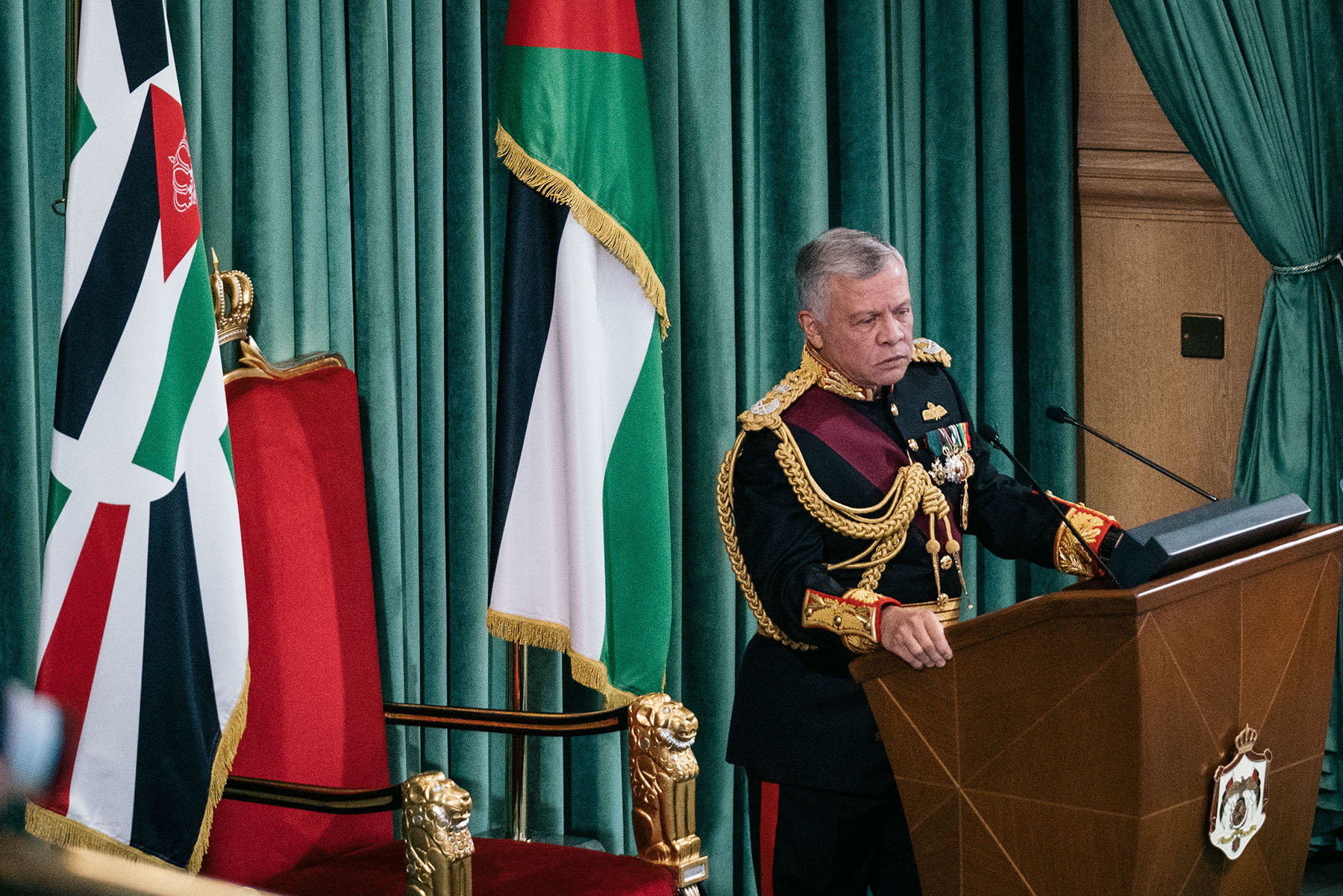David M. Wight is a historian at the University of North Carolina at Greensboro. He is the author of Oil Money: Middle East Petrodollars and the Transformation of U.S. Empire, 1967-1988.
For years now, the Saudi monarchy has energetically engaged in "sportswashing," using high-profile sports to rehabilitate an international reputation stained by human rights abuses, from the murder of Jamal Khashoggi to airstrikes in Yemen on weddings and crowded markets. By spending billions of dollars to purchase professional sports leagues and host major sporting events, bankrolled by the kingdom's sovereign wealth fund, the Saudi government has endeavored to deflect global attention away from this long track record of violence and brutality, both at home and abroad. Saudi Arabia under Crown Prince Mohammed bin Salman hopes to be associated more with the Newcastle United Football Club, LIV Golf and Formula 1 than with the execution of peaceful demonstrators and the bombing of children.
Saudi Arabia has hardly maxed out on sportswashing, as it recently secured the rights to host the FIFA World Cup in 2034, with a flashy and very expensive bid. But the Saudi government has now expanded its public relations and influence strategy beyond sports to diplomacy. Instead of international football stars or boxers, the kingdom has hosted foreign officials for ostentatious displays of diplomatic talks. Call it "diplomacywashing."
Saudi diplomacywashing has centered on a series of high-profile talks on ending the war between Russia and Ukraine—most recently in late March in Riyadh, where U.S. diplomats met separately with Russian and Ukrainian officials in a failed effort to secure a cease-fire. Those talks were preceded by an earlier March meeting between U.S. Secretary of State Marco Rubio and Ukrainian officials in Jeddah and a February conference with Rubio and Russian Foreign Minister Sergei Lavrov, also in Riyadh.
Most media coverage of these talks framed them as Saudi Arabia "emerging as a diplomatic broker." Yet while the kingdom hosted them, the Saudi government has played no discernible role in any of these negotiations. Indeed, the Saudi monarchy is more interested in simply being seen as a so-called "diplomatic broker" than in actually being engaged in this diplomacy based on any Saudi national security concerns or even the substance and outcomes of these talks. For the crown prince and the rest of his court, the primary purpose of hosting such talks in the kingdom is hollow public relations: to convince the world that Saudi leaders, and especially MBS, are diplomatic "peacemakers," instead of authoritarian rulers who brutally crush dissent and oppress their own people.
The Saudi monarchy is more interested in simply being seen as a "diplomatic broker" than in actually being engaged in this diplomacy based on any Saudi national security concerns or even the substance and outcomes of these talks.
- David M. Wight
Even before Khashoggi's murder in the Saudi consulate in Istanbul by agents of the Saudi government, the kingdom's global image has suffered for years due to the governing decisions of its royal family. For decades, Saudi royals have upheld a lack of democracy, a checkered relationship with violent Islamists, widespread abuse of migrant laborers and brutal discrimination against religious minorities, the LGBTQ community, and women. Since 2015, MBS has sunk that reputation further, with a flurry of brutal and reckless decisions, including the Saudi-led military intervention in Yemen that killed thousands of civilians.
So while the war in Ukraine is not a direct concern for Saudi national security, the chance to host meetings of high-level Russian, Ukrainian and U.S. delegations is a public relations coup for MBS and Saudi Arabia. Instead of his record of belligerence and war, the crown prince can be portrayed as a diplomatic statesman trusted by world leaders. Instead of the country that executed at least 345 people in 2024, including individuals who were tortured or convicted of Orwellian crimes like "adopting a terrorist ideology" or "sympathizing with those arrested in terrorism-related cases," Saudi Arabia can grab headlines as a supposed mediator for peace.
The Saudi government is hardly hiding its intentions with this diplomacywashing. The Saudi Ministry of Foreign Affairs, for example, issued a gushing statement declaring that the February meeting between U.S. and Russian delegations occurred "under the direction of His Royal Highness Prince Mohammed bin Salman" as "part of the Kingdom's efforts to enhance security and peace in the world." Talking heads and media commentators allied with the Saudi government have likewise adopted the same line. Ali Shihabi, a Saudi lobbyist in Washington and apologist for the crown prince, told CNN of the Saudi-hosted talks: "I don't think there's another place where the leader has such a good personal relationship with both Trump and Putin." He described the summit as "prestigious," enhancing "Saudi soft power regionally and globally."
Similarly, Asharq Al-Awsat, a leading Arabic newspaper internationally that is owned by a Saudi state-backed media company and champions the Saudi government, has pumped out its own diplomacywashing coverage of the talks. One article announcing the first U.S.-Ukrainian meeting featured Salman al-Ansari, a Saudi international relations researcher, who declared that "all roads lead to Riyadh." Another piece, published on the final day of U.S. cease-fire negotiations with Russia in late March, insisted that the crown prince's diplomatic presence had expanded "Saudi Arabia's leading role in international politics." Under MBS, it claimed, "Saudi foreign policy has expanded its role in supporting peace, development and stability," and hosting the talks showed "that Saudi foreign policy enjoys the trust of allies and adversaries."
By selecting Saudi Arabia to playact as a diplomatic mediator, Trump and Putin have given the Saudi government a gift: images of supposedly high-profile diplomacy calculated to launder the Saudi monarchy's reputation.
- David M. Wight
At the annual Saudi Media Forum in Riyadh in late February, Jamil al-Dhiabi, the editor-in-chief of the Saudi newspaper Okaz, proclaimed that "Western media, which used to describe Saudi Arabia negatively, has changed today, and the same media now highlights the tremendous potential of Saudi Arabia," referring to the diplomatic talks. Al-Dhiabi's claim is a self-serving simplification. He left out the fact that Western reporting continues to include negative references to the murder of Khashoggi and the failed war in Yemen. But he is right that a degree of diplomacywashing has taken hold in Western media, with rosy headlines and reporting that plays up the role of Saudi mediation, boosting the narrative sought by MBS.
In truth, Saudi Arabia's role as a mediator between the United States, Russia and Ukraine is greatly overstated. With both Trump and Putin evincing a strong interest in improving U.S.-Russian ties at the expense of Ukraine, it would seem the two leaders do not actually need a third country to serve as an intermediary. And even if they do, there are many countries they could choose from. Ukrainian President Volodymyr Zelensky has happily dealt with the United States directly for years, but after his acrimonious White House summit with Trump in February, it appears he accepted holding meetings between American and Ukrainian officials in Saudi Arabia in an effort to mend fences with the White House. And although Saudi Arabia served as the site of Ukraine cease-fire negotiations, reporting has characterized these talks as being conducted by U.S. officials, with scant evidence being put forth of any substantive role being played by Saudi leaders.
By selecting Saudi Arabia to playact as a diplomatic mediator, Trump and Putin have given the Saudi government a gift: images of supposedly high-profile diplomacy calculated to launder the Saudi monarchy's reputation. The rest of the world should not fall for this diplomacywashing.































![Security forces loyal to the interim Syrian government stand guard at a checkpoint previously held by supporters of deposed president Bashar al-Assad, in the town of Hmeimim, in the coastal province of Latakia, on March 11, 2025. Syria's new authorities announced on March 10, the end of an operation against loyalists of deposed president Bashar al-Assad, after a war monitor reported more than 1,000 civilians killed in the worst violence since his overthrow. The Syrian Observatory for Human Rights said the overwhelming majority of the 1,068 civilians killed since March 6, were members of the Alawite minority who were executed by the security forces or allied groups. (Photo by OMAR HAJ KADOUR / AFP) / “The erroneous mention[s] appearing in the metadata of this photo by OMAR HAJ KADOUR has been modified in AFP systems in the following manner: [Hmeimim] instead of [Ayn Shiqaq]. Please immediately remove the erroneous mention[s] from all your online services and delete it (them) from your servers. If you have been authorized by AFP to distribute it (them) to third parties, please ensure that the same actions are carried out by them. Failure to promptly comply with these instructions will entail liability on your part for any continued or post notification usage. Therefore we thank you very much for all your attention and prompt action. We are sorry for the inconvenience this notification may cause and remain at your disposal for any further information you may require.”](https://dawnmena.org/wp-content/uploads/2025/04/syria-22039885951-360x180.jpg)







